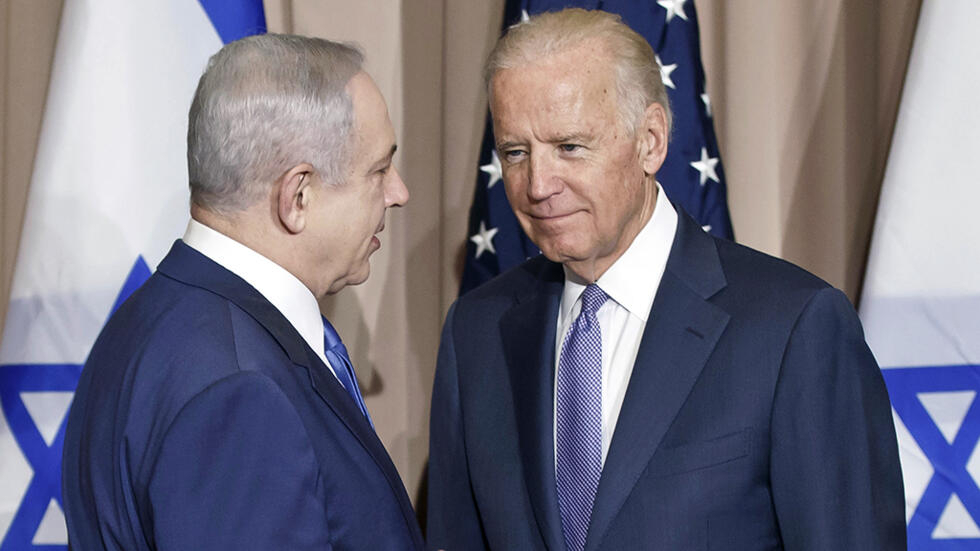The tension between US President Joe Biden and Israel Prime Minister Benjamin Netanyahu is growing to the extent that the ongoing conflict between Israel and Hamas may make even the seemingly impossible possible – the formation of a Palestinian state. In fact, reliable reports suggest that a blueprint for this is being readied by the US administration with the help of some Arab countries and Palestinian leaders with the approval of Biden. In view of the obduracy of Netanyahu not to stop Israeli assault on the fleeing Palestinians taking refuge in Rafah, the US President is left with no other course to bring peace in the region at a time when he is seeking re-election. In a fast paced development, the US has proposed 20 February a rival draft United Nations Security Council resolution calling for a temporary ceasefire in the Israel-Hamas war and opposing a major ground offensive by Israel in Rafah. Israel, on its part, is continuing with its belligerence and a member of its war cabinet has threatened the country will launch the ground offensive in Rafah, if Hamas does not release its remaining Israeli hostages by the beginning of the holy Moslem month of Ramadan in just under three weeks.
Biden’s phone call to Netanyahu a few days back lasting about 40 minutes suggests the US President is following the policy of a bear hug with Netanyahu in public, but tough talk in private. Authentic reports are emerging that Biden is not concealing in private conversation his anger with Netanyahu against whom he has even reportedly used abusive language.
Israel’s official version states that the two leaders discussed the hostages taken during the 7 October Hamas onslaught, Rafah, the next stage in the fight against Hamas and touched on the humanitarian situation in the Gaza Strip. A White House statement also said the pair talked about hostage negotiations, conditions in Gaza and the prospect of an Israeli military operation in Rafah, the last Hamas stronghold in the enclave, where 1.4 million displaced Palestinians have fled to seek shelter from fighting elsewhere.
However, Biden has been increasingly critical in public. Last week he described Israel’s military assault in Gaza as “over the top” and said he was seeking a sustained pause in fighting to help ailing Palestinian civilians and negotiate the release of Israeli hostages, though this is still far short of the ceasefire calls being demanded by the progressives. He also told Netanyahu that Israel should not go ahead with a military operation in the densely populated Gaza border town of Rafah without a “credible” plan to protect civilians.
The conversation came as Netanyahu met with CIA chief William Burns, the war cabinet and the full national security cabinet. But, Netanyahu made it clear that Israel rejects international dictates regarding a permanent settlement with the Palestinians. This kind of arrangement could be reached only through direct negotiations between the parties, without preconditions.
Such a statement itself shows Netanyahu is indeed under pressure and his usual hawkish position appears somewhat tempered. He also said Israel will continue to oppose the unilateral recognition of a Palestinian state. Such recognition in the wake of the 7 October massacre would give a huge reward to unprecedented terrorism and prevent any future peace settlement. This further betrays Netanyahu’s nervousness over reports of a blueprint being worked out by the US for the formation of a Palestinian state keeping Israeli leadership in the dark.
One report said the US and several Arab partners – Egypt, Jordan, Qatar, Saudi Arabia, the United Arab Emirates, Palestinian representatives – are preparing a detailed plan for a comprehensive peace deal between Israel and Palestinians that includes a “firm timeline” for a Palestinian state. An announcement on the blueprint could come in the next few weeks, though the timing is largely dependent on Israel and Hamas being able to reach a deal to pause the fighting in Gaza. This is despite the fear that an Israeli ground offensive in Gaza’s Rafah will derail the potential for a peace process.
If Netanyahu ignores Biden again and presses ahead, Biden could express his displeasure by slowing or restricting weapons sales to Israel, changing course at the UN by throwing America’s weight behind a ceasefire resolution or coming out aggressively for Palestinian statehood.
Such a volte face by Biden, who has longstanding friendship with Netanyahu, may dash the latter’s plan aided and abetted by his Far-Right alliance partners to hound out Palestinians and legitimise Israeli occupation of Gaza. But, Biden has far greater stakes and it seems he is ready to sacrifice his old ally whose vaulting ambition appears to overleap itself.
